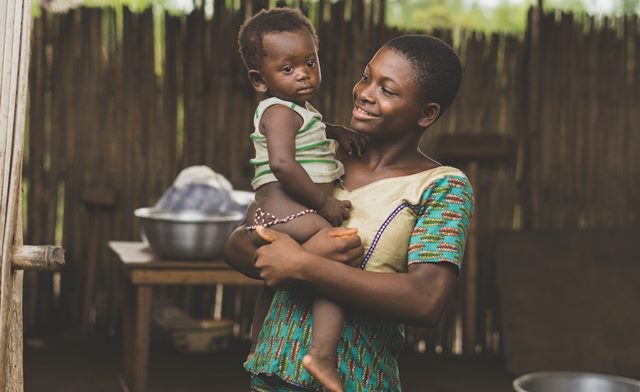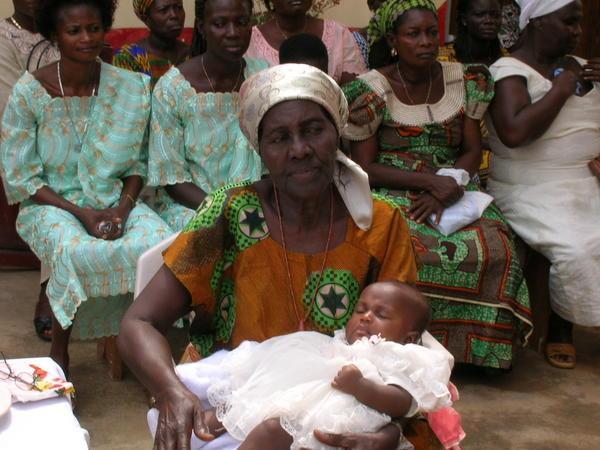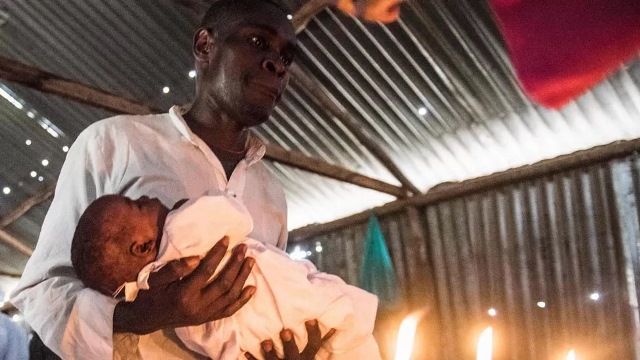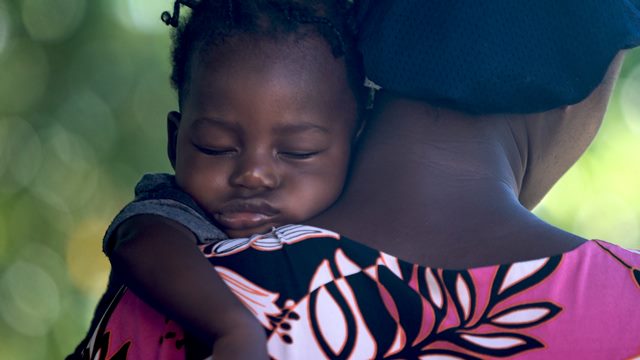Last Updated on March 1, 2023
In African culture, names are more than just a means of identification. A name carries a wealth of history, meaning, and significance. From the moment a child is born, their name becomes a part of their identity and a reflection of their heritage.
The importance of names in African culture can be seen in how they are chosen, used, and celebrated. Whether it is a traditional name passed down through generations or chosen to reflect a particular characteristic or event, each name holds a story waiting to be uncovered.
Join us as we delve into the fascinating world of African names and explore their deep significance in this vibrant culture.

Historical Context of Names in African Culture
The importance of names in African culture has been integral to the continent’s history and traditions. Names carry meaning, reflecting a person’s heritage, identity, and aspirations.
Understanding the historical context of African naming practices is essential to fully appreciate the significance of names in African culture.
Traditional African naming practices were steeped in customs and traditions passed down from generation to generation. The naming of a child was a communal affair, and the entire community was involved. The names given were symbolic and reflected the circumstances of the child’s birth, such as the day of the week or time of day.
For example, in the Yoruba culture of Nigeria, children are often given names based on their birth circumstances.
A child born during the rainy season might be named “Oluwasegun,” which means “God has conquered.” This name reflects the belief that the child’s birth during the rainy season was a sign of God’s favor and protection.
Similarly, in the Akan culture of Ghana, children are often named after the day of the week they were born, with each day associated with a particular symbol and meaning.
Read: The Rich Diversity of African Languages and Their Importance
The Influence of Colonialism on Naming
However, with the arrival of colonialism, African naming practices were disrupted and replaced with European names. The imposition of European names on African communities and culture was an attempt to assimilate Africans into colonial society and erase their cultural identity. European names were also used to reinforce the idea of European superiority and African inferiority.
This is synonymous with How the United States Erased Native Americans From Its History.
As a result, many African parents started to give their children European names to help them assimilate into colonial society. The adoption of European names was seen as a way to gain access to education, employment, and other opportunities reserved for Europeans. European names became so prevalent that many Africans started to view traditional African names as backward and uncivilized.
However, in recent times, there has been a resurgence of African naming practices, and many parents are choosing to give their children traditional African names.
This resurgence is partly due to the recognition that African names are not just labels but carry a sense of identity, heritage, and pride. The revival of African naming practices also rejects the colonial legacy that sought to erase African culture and identity.
The Symbolism of Names in African Culture
In African culture, names are not just labels but are imbued with deep symbolic meaning. Each name carries a unique history, story, and symbolism that reflects the values and traditions of the community.

Names Symbolize a Child’s Destiny
One of the most common symbols in African names is the concept of “destiny.” Many African names are chosen based on the belief that a child’s name can influence their destiny and personality.
In the Yoruba culture of Nigeria, for example, a child’s name often reflects their destiny or purpose in life. Names like “Oluwaseyi,” which means “God made this,” or “Oluwatobi,” which means “God is great,” reflect the belief that God has a plan for each person’s life.
Names Allude to a Person’s Ancestry
Another important symbol in African names is ancestry. African names often reflect a person’s lineage and ancestral heritage.
For example, in the Akan culture of Ghana, a child’s name is often derived from the name of their father, grandfather, or ancestor. These names reflect the importance of community and heritage in African culture.
African Names Are Derived From Nature
Nature is also a common symbol in African names. Many African names are derived from natural elements such as animals, plants, and natural phenomena.
In the Zulu culture of South Africa, for example, names like “Themba,” which means “hope,” and “Thandiwe,” which means “beloved,” are derived from natural elements such as stars and flowers.
Names Symbolize Strength and Courage
Symbols of strength, courage, and power are also prevalent in African names. Names like “Nkosi,” which means “ruler,” or “Chinonso,” which means “God accompanies me,” reflects the belief in the strength and power of individuals and their ability to overcome challenges and adversity.
African Names Reflect Community Bonds
The symbolism of names in African culture also demonstrates the importance of community and relationships. Many African names are chosen based on the circumstances surrounding a person’s birth or the relationships between individuals.
For example, in the Yoruba culture of Nigeria, twins are often named “Taiwo” and “Kehinde,” reflecting their birth order. Similarly, in the Akan culture of Ghana, names like “Akua,” which means “born on Wednesday,” point to the relationship between a person’s birth and the day of the week.
Read: The Impact of Natural Resources on African Politics and Economy
Naming Ceremonies in Africa
In African culture, naming ceremonies are essential to welcoming a new baby into the world. These ceremonies vary across different cultures and regions but share a common purpose. And this purpose is to celebrate a child’s birth and give them a name that reflects their identity and heritage.

Naming ceremonies in African culture are typically held a few days or weeks after a baby’s birth. The ceremony is often presided over by an elder or spiritual leader, who performs rituals and prayers to bless the child and give them a name. Family and friends are usually invited to the ceremony, which is often accompanied by feasting, dancing, and music.
In many cultures, naming ceremonies are believed to have a spiritual significance. As mentioned, it is believed that the name given to a child can influence their destiny and character and that the ceremony is an opportunity to invoke the blessings of the ancestors and the divine.
For example, in Yoruba naming ceremonies, the elder presiding over the ceremony may consult divination such as Ifa or cowries to help choose a name aligned with the child’s destiny and purpose in life.
Naming ceremonies in African culture are also an opportunity to strengthen community bonds and build relationships. The ceremony introduces the child to their family and community and affirms their place within it.
In some cultures, such as the Wolof of Senegal, the ceremony is accompanied by the exchange of gifts and favors between the child’s family and their guests. This exchange is believed to strengthen social bonds and build a sense of reciprocity and obligation within the community.
Importance of Names in the African Culture
The importance of names in African culture can be traced back to ancient times when they were used to signify status, identity, and spiritual connections.
African names are often rooted in the local language and carry cultural and historical meanings. Therefore, names are essential to an individual’s identity, connecting them to their family, community, and culture.

Moreover, names in African culture are also associated with rituals and ceremonies, such as the naming ceremonies discussed earlier. These ceremonies are an opportunity to celebrate the birth of a child, honor their heritage, and pray for their well-being and success. They also serve as a way to connect the child to their ancestors and spiritual traditions.
Finally, African names are a way of preserving cultural heritage and history. Many African names have historical significance, telling stories of past events, ancestors, or heroes. They also serve to pass down cultural values, beliefs, and practices from one generation to another.
Before you go…
Hey, thank you for reading this blog to the end. I hope it was helpful. Let me tell you a little bit about Nicholas Idoko Technologies. We help businesses and companies build an online presence by developing web, mobile, desktop, and blockchain applications.
We also help aspiring software developers and programmers learn the skills they need to have a successful career. Take your first step to becoming a programming boss by joining our Learn To Code academy today!
Be sure to contact us if you need more information or have any questions! We are readily available.











